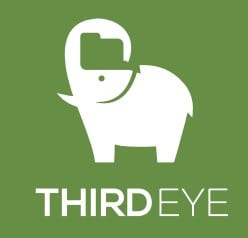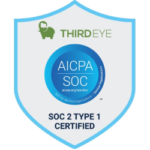The eyes may be the window to the soul, but the face is the door through which we can enter the future. OK, we’re a bunch of underpaid MBAs, not starving poets, but that was our less prosaic way of introducing the topic of this article: facial recognition technology. Facial recognition technologies are becoming ubiquitous, from unlocking your smartphone to identifying your so-called friends on Facebook. Retailers use facial recognition to spot shoplifters, and doctors are starting to employ the technology to detect certain kinds of diseases. Heck, there’s even a facial recognition platform for cows! There’s no dearth of companies developing and refining the technology, and here we’ve pulled together the eight top-funded facial recognition startups out there today, per Crunchbase.
What is Facial Recognition?
But before we hit the list, it may be worth understanding a bit more about facial recognition. At its most basic, facial recognition technology, sometimes referred to as facial biometrics, involves using a 2D or 3D camera or sensor to capture an image of a human face. The algorithms measure numerous points on the face down to the submillimeter. The pattern is then compared to others in a database for a match, whether it’s the billion people on Facebook or the one that unlocks your smartphone.
History of Facial Recognition Technology
While it may seem like facial recognition just arrived on the scene with the rise of artificial intelligence and related technologies such as computer vision, it’s actually been around for decades. A guy named Woodrow Wilson Bledsoe is usually credited as being one of the first to develop a system to classify photos of faces back in the 1960s. He used a newfangled instrument of the era called a RAND tablet, a graphical computer input device developed at the RAND Corporation, to record the coordinates of facial features like eyes, nose and mouth. The measurements were then recorded in a database. It was predictably limited—it only returned results for white guys with crew cuts—by the computing power of the time.

The RAND tablet in action. Credit: RAND Corporation
The techniques and technology were refined over the succeeding decades. By 1991, some really smart people figured out a way to detect faces within images. A decade later, the first major test of facial recognition technology on a large scale took place at Super Bowl XXXV, though the technology had a hard time picking out faces in the crowd, and the New York Giants had a hard time finding the end zone. Facebook popularized facial recognition by 2010, about the same time most historians agree Western civilization began its inevitable decline into Idiocracy.
Facial Recognition Startups
Today, facial recognition is used in dozens of ways, including Big Brother creepy applications, such as a startup called Faception that says it can determine whether or not someone is a terrorist based on how he or she looks. Security and surveillance are certainly the top uses of facial recognition. Not surprisingly, the two most-funded facial recognition startups on our list are from China.
One of the Most Valuable AI Startups in the World
 We did a deep dive into Hong Kong-based SenseTime back in February. All it has done since then is nearly triple its venture capital to $1.6 billion, earning it a $4.5 billion valuation as one of the most valuable artificial intelligence startups in the world. It raised $600 million in April and then another $620 million the next month. Big Chinese tech companies like Alibaba (NYSE:BABA) are obvious investors, along with U.S. chipmaker Qualcomm (NASDAQ:QCOM), among others. SenseTime’s technology is an integral part of the Chinese government’s surveillance programs of its 1.3 billion citizens, including the use of smart glasses by police for facial recognition of jaywalkers who could lose points on their social credit score.
We did a deep dive into Hong Kong-based SenseTime back in February. All it has done since then is nearly triple its venture capital to $1.6 billion, earning it a $4.5 billion valuation as one of the most valuable artificial intelligence startups in the world. It raised $600 million in April and then another $620 million the next month. Big Chinese tech companies like Alibaba (NYSE:BABA) are obvious investors, along with U.S. chipmaker Qualcomm (NASDAQ:QCOM), among others. SenseTime’s technology is an integral part of the Chinese government’s surveillance programs of its 1.3 billion citizens, including the use of smart glasses by police for facial recognition of jaywalkers who could lose points on their social credit score.

Credit: SenseTime
That hasn’t stopped institutions like MIT from partnering with SenseTime on “moonshot” research into machine learning and other AI technologies. Or prevented SenseTime, founded only four years ago, from opening a “smart health” lab in New Jersey to apply computer vision to medical problems.
Facial Recognition Beauty in the Eye of the Beholder
 Founded back in 2011, Beijing-based Megvii (not to be confused with Chinese gremlins named mogwai) hasn’t been on the same stratospheric tear as SenseTime, but the facial recognition startup has raised $607 million, good enough to earn it a spot in the Unicorn Club and on the list of the world’s most valuable AI startups. In addition to counting Alibaba as an investor, Megvii (also known as Face++), has gotten funding from the world’s biggest fintech startup, Ant Financial, a spin off from Alibaba. In other words, there’s no reason to think that Megvii won’t have access to more capital in the future if needed.
Founded back in 2011, Beijing-based Megvii (not to be confused with Chinese gremlins named mogwai) hasn’t been on the same stratospheric tear as SenseTime, but the facial recognition startup has raised $607 million, good enough to earn it a spot in the Unicorn Club and on the list of the world’s most valuable AI startups. In addition to counting Alibaba as an investor, Megvii (also known as Face++), has gotten funding from the world’s biggest fintech startup, Ant Financial, a spin off from Alibaba. In other words, there’s no reason to think that Megvii won’t have access to more capital in the future if needed.

Let a machine tell you how attractive you are to the average Chinese person using Beauty Score. Credit: Megvii
Megvii offers a number of different facial recognition solutions, from the usual face detection and search capability, to the more subjective Miss Universe-type applications, like Beauty Score, which we found the algorithm to be biased against ruggedly handsome white guys with beards. Megvii also offers various body and image recognition applications, as part of the company’s full spa treatment.
Facial Recognition for Enterprise
![]() Founded in 2013, San Francisco-based Ever AI has raised $29 million, including a $16 million Series B a year ago. Investors include prestigious VC firms like Khosla Ventures. Ever AI has developed—over the course of four years and 12 billion images—a facial recognition platform it claims rivals those of the major tech companies like Amazon, Apple, Facebook, and Google, but the first of its kind to be made available to outside enterprises.
Founded in 2013, San Francisco-based Ever AI has raised $29 million, including a $16 million Series B a year ago. Investors include prestigious VC firms like Khosla Ventures. Ever AI has developed—over the course of four years and 12 billion images—a facial recognition platform it claims rivals those of the major tech companies like Amazon, Apple, Facebook, and Google, but the first of its kind to be made available to outside enterprises.

Comparison of facial recognition accuracy among companies. Credit: Ever AI
Those results above definitely confirm one thing: IBM Watson has certainly fallen short of expectations. Ever AI says its facial recognition technology can be used in a variety of applications, from retail personalization to payment authentication to prevent fraud. The startup recently added a bunch of new features including “liveness detection,” which is the ability to determine if the face detected is “live,” as opposed to a photo. One prominent customer includes SoftBank and its humanoid robot Pepper.
Facial Recognition Using Blockchain
 Founded in 2014, Silicon Valley’s Faceter raised $28.6 millionthrough an Initial Coin Offering (ICO). That’s not the only unusual thing about this startup, as it is developing a decentralized system of real-time video surveillance through both facial and body recognition. Faceter claims its new twist will process and analyze video data online using some sort of combination of crypto mining and fog computing. If that makes as much sense to you as World of Warcraft, you’re not alone.
Founded in 2014, Silicon Valley’s Faceter raised $28.6 millionthrough an Initial Coin Offering (ICO). That’s not the only unusual thing about this startup, as it is developing a decentralized system of real-time video surveillance through both facial and body recognition. Faceter claims its new twist will process and analyze video data online using some sort of combination of crypto mining and fog computing. If that makes as much sense to you as World of Warcraft, you’re not alone.

Mining in the fog sounds dangerous. Credit: Faceter
The company cites statistics that one billion video cameras will be installed in the next three years. That’s a pretty powerful business case, even if their tech sounds a bit too buzzy. As for “investing in ICOs“, just take the money you want to spend on utility tokens and light it on fire. The heat that fire generates will be of greater value than those worthless tokens you’re thinking about buying.
Germany’s Bosch Shows Interest in Facial Recognition
![]() Founded in 2015, AnyVision is an Israeli startup that raised $28 million in July, with German engineering and electronics manufacturer Bosch leading the Series A. Earlier this year, Bosch had taken a 9 percent stake in the company, so obviously there’s some confidence in AnyVision’s facial recognition technology. The company offers solutions for surveillance (ominously named Better Tomorrow) and mobile. AnyVision also markets its Better Tomorrow platform for commercial purposes.
Founded in 2015, AnyVision is an Israeli startup that raised $28 million in July, with German engineering and electronics manufacturer Bosch leading the Series A. Earlier this year, Bosch had taken a 9 percent stake in the company, so obviously there’s some confidence in AnyVision’s facial recognition technology. The company offers solutions for surveillance (ominously named Better Tomorrow) and mobile. AnyVision also markets its Better Tomorrow platform for commercial purposes.
Facial Recognition Hardware
 Reconova is another facial recognition startup out of China. Founded in 2011, it raised $15 million in a Series B last year, followed by an undisclosed round in May led by Intel (NASDAQ:INTC). It also has some impressive customers, including Alibaba (NYSE:BABA), JD.com (NASDAQ:JD), Huawei and Xiaomi. In addition to developing facial recognition technologies with better than 95 percent accuracy, Reconova also produces hardware, including what the company claims is China’s first HD network camera with a built-in chip specially designed for facial recognition:
Reconova is another facial recognition startup out of China. Founded in 2011, it raised $15 million in a Series B last year, followed by an undisclosed round in May led by Intel (NASDAQ:INTC). It also has some impressive customers, including Alibaba (NYSE:BABA), JD.com (NASDAQ:JD), Huawei and Xiaomi. In addition to developing facial recognition technologies with better than 95 percent accuracy, Reconova also produces hardware, including what the company claims is China’s first HD network camera with a built-in chip specially designed for facial recognition:

Credit: Reconova
Other products include a Face-ID verification terminal to capture faces and compare them against profile pictures read from ID materials or QR codes. Say, “cheese.”
Facial Recognition for Video Creation
 Founded in 2013, Cynny out of Italy has raised about $14 million for a facial recognition platform for mobile called MorphCast. Cynny claims that it can tailor videos (and marketing) based solely on the user’s facial features via the mobile device’s camera. The AI can recognize gender with 95 percent accuracy, and reputedly does even better with emotions, scoring 97 percent accuracy. It can even determine age within seven years, which is better than most sideshow carnies.
Founded in 2013, Cynny out of Italy has raised about $14 million for a facial recognition platform for mobile called MorphCast. Cynny claims that it can tailor videos (and marketing) based solely on the user’s facial features via the mobile device’s camera. The AI can recognize gender with 95 percent accuracy, and reputedly does even better with emotions, scoring 97 percent accuracy. It can even determine age within seven years, which is better than most sideshow carnies.
Facial Recognition for Catching Shoplifters
 Founded way, way back in 2007, FaceFirst out of the Los Angeles area has only raised $9.5 million, suggesting it might actually be turning some sort of profit. The startup focuses on surveillance, particularly in retail. FaceFirst says its retail security facial recognition platform reduces shoplifting by 34 percent, and in-store violence by 91 percent on average. In addition, FaceFirst recently rolled out a fraud detection solution that catches people who try to return products which they did not purchase at a store. We hope this doesn’t affect our REI membership.
Founded way, way back in 2007, FaceFirst out of the Los Angeles area has only raised $9.5 million, suggesting it might actually be turning some sort of profit. The startup focuses on surveillance, particularly in retail. FaceFirst says its retail security facial recognition platform reduces shoplifting by 34 percent, and in-store violence by 91 percent on average. In addition, FaceFirst recently rolled out a fraud detection solution that catches people who try to return products which they did not purchase at a store. We hope this doesn’t affect our REI membership.
And, by the way, retailers don’t have to tell you that they’re collecting biometric data in any state except Illinois, where it’s been illegal to do since 2008, according to BuzzFeed.
Conclusion
The recent spate of news about the lack of online privacy—whether we’re talking about Google tracking your location or Facebook selling your baby photos for advertising dollars—should convince you that the Brave New World of Huxley and Orwell is here to stay. Facial recognition is one of the fastest evolving technologies in this emerging mileu. Machines will be able to spot each of us instantly, recognize our emotions, and maybe even detect disease, simply from scanning the peaks and crevices of our faces, as we go about our daily lives.
The companies that are refining these facial recognition technologies are developing one of the underlying platforms for this smart future of the 21st century and beyond. Keep an eye out, especially, on SenseTime and Megvii. Chinese startups are going public faster than a fat man consuming food at an all-you-can-eat Chinese buffet, with NIO, CooTek and Liulishuo all filing IPOs recently.
Are you paying too much in transaction fees to your broker? Check out a brokerage firm called Zacks Trade that’s offering $1 trades until 2019. After that, you’ll pay just $3 a trade or a penny a share, whichever is greater. It’s one of the cheapest brokers out there and you can also trade stocks on foreign stock exchanges.





